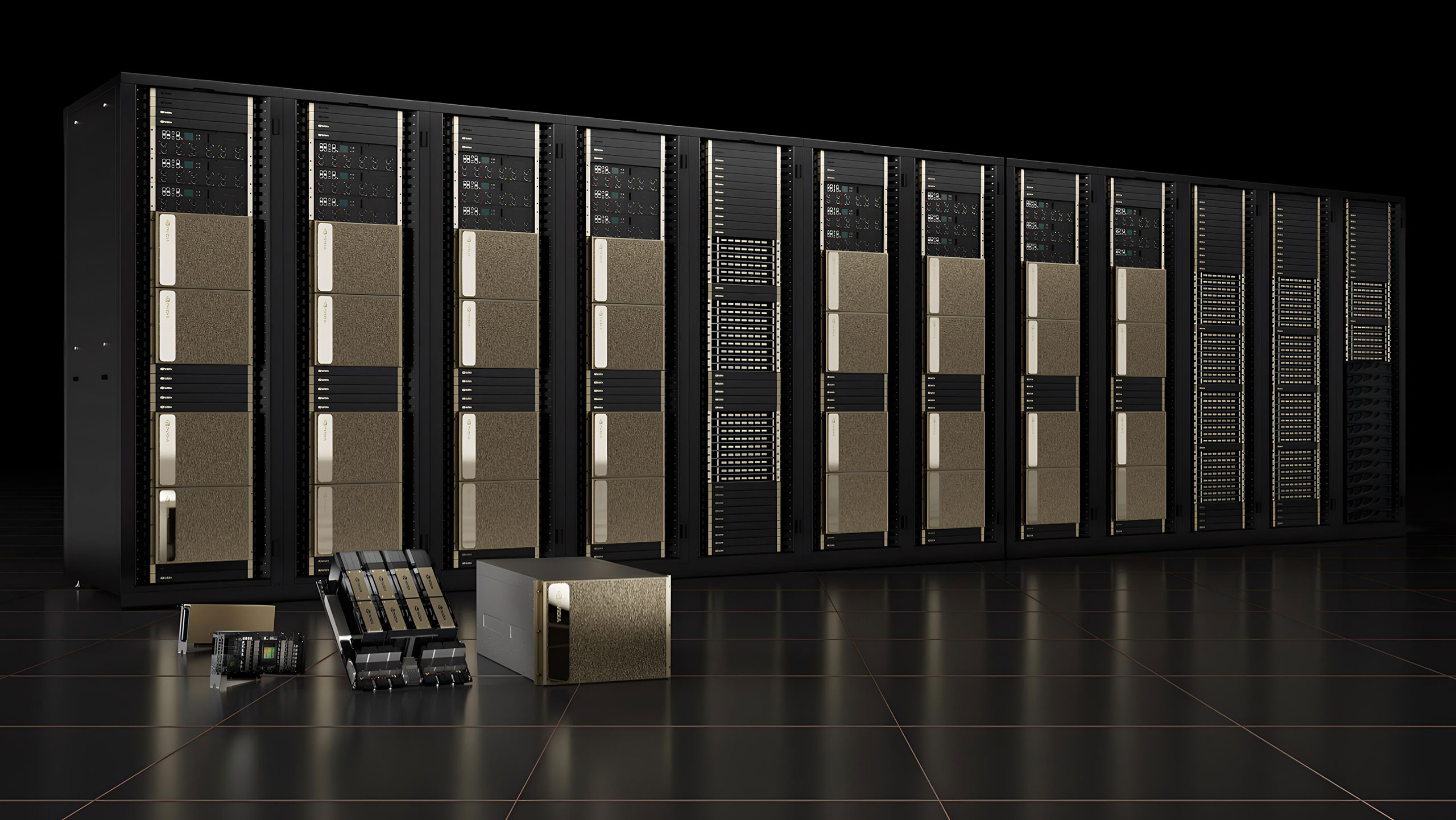Nvidia celebrates dumping of Biden-era AI chip export rules — simpler new policy promised
But the new rules aren't yet set in stone.

The Trump administration intends to cancel the AI Diffusion Rule export control policy, reports Bloomberg. This policy restricts shipments of advanced AI processors to all but 19 countries around the world, and was introduced under the President Biden in January. Details about the revised policy are unclear, but it is believed to focus on country-by-country negotiations over broad global rules, while continuing strict controls on China. Despite the lack of new detail, Nvidia is already celebrating.
"The Biden AI rule is overly complex, overly bureaucratic, and would stymie American innovation," a statement by the Commerce Department’s Bureau of Industry and Security published by Bloomberg reads. "We will be replacing it with a much simpler rule that unleashes American innovation and ensures American AI dominance."
The regulation in question, known as the AI diffusion rule, was set to take effect on May 15 and would have categorized foreign nations into three groups for licensing purposes. Under this system, only the U.S. and 18 allied 'Tier 1' countries have full access to processors like Nvidia's H100. Over 100 'Tier 2' nations would face a cap of about 50,000 H100-class GPUs annually over the next few years, unless they obtain verified end user (VEU) status. Note that entities in Tier 2 nations may still import up to 1,700 advanced AI processors per year without a license, which would not count toward the cap. 'Tier 3' countries — such as China, Russia, and Macau — would be barred from getting advanced processors entirely due to arms embargoes.
The new bilateral approach
Trump officials, however, will not implement the above framework. Instead, they are crafting a new approach focused on bilateral arrangements with countries such as Saudi Arabia and the United Arab Emirates. To get advanced GPUs, such countries may have to invest in the U.S., or broaden diplomatic cooperation, according to the report. For example, nations like the UAE have advocated for looser rules and have committed to long-term U.S. technology investment, pledging as much as $1.4 trillion over the next 10 years. Until recently, the UAE had to obtain an export license from the U.S. government to obtain advanced AI processors, such as Nvidia's H100 and H200.
While the Trump team seeks to revise global export rules for AI processors, it has reinforced restrictions against China's access to advanced AI GPUs designed in the U.S., including AMD's Instinct MI308 and Nvidia's H20. As a result, the two companies had to write down billions worth of AI processors in the most recent quarter. It is unlikely that the U.S. government lifts the ban on these processors, but Nvidia is already celebrating the fact that the AI Diffusion Rule is gone. As a result, it can continue shipping its AI and HPC GPUs to Europe without any restrictions.
"We welcome the Administration's leadership and new direction on AI policy," a statement by Nvidia reads. "With the AI Diffusion Rule revoked, America will have a once-in-a-generation opportunity to lead the next industrial revolution and create high-paying U.S. jobs, build new U.S.-supplied infrastructure, and alleviate the trade deficit."
Nvidia has argued that controlling sales to non-Chinese nations could alienate allies and drive them to China's Huawei AI ecosystem, thus threatening U.S. leadership in the AI sector in the long term. The change may also benefit U.S. firms with global infrastructure ambitions. For example, Oracle's expansion plans in Malaysia faced potential obstacles under the prior rule due to shipment caps. However, keeping in mind the fact that the Trump administration has a strict stance against China, it is possible that it may curb sales of advanced GPUs to countries used to smuggle Nvidia's H100 processors and servers to China, which includes Malaysia, Thailand, and Singapore.
Get Tom's Hardware's best news and in-depth reviews, straight to your inbox.
Follow Tom's Hardware on Google News to get our up-to-date news, analysis, and reviews in your feeds. Make sure to click the Follow button.

Anton Shilov is a contributing writer at Tom’s Hardware. Over the past couple of decades, he has covered everything from CPUs and GPUs to supercomputers and from modern process technologies and latest fab tools to high-tech industry trends.